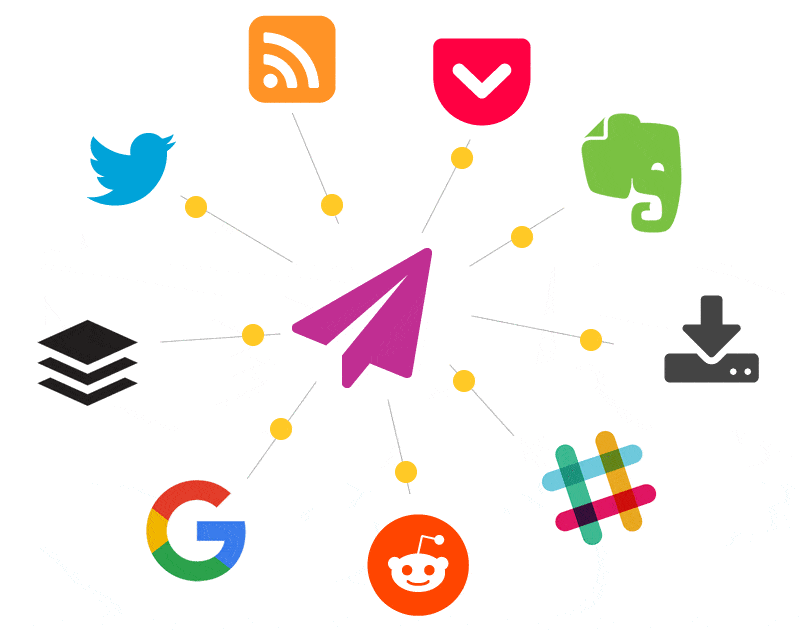In the digital age, social media has become an integral part of our daily lives. It has revolutionized the way we connect, communicate, and consume information.
For businesses, social media has also proven to be a powerful tool for reaching and engaging with customers.
However, to fully harness the potential of social media, integration with customer relationship management (CRM) systems is crucial.
Social media integration with CRM systems refers to the seamless connection between social media platforms and your CRM software. This integration allows businesses to gain valuable insights into customer behavior, preferences, and interactions on social media channels.
One of the key benefits of social media integration is the ability to monitor and analyze customer sentiment.
This real-time feedback loop helps in improving customer service and brand reputation.
Definition of Social Media Integration

Social media integration refers to the process of incorporating various social media platforms into a company’s customer relationship management (CRM) systems. It enables businesses to streamline their marketing efforts, enhance customer engagement, and build stronger relationships with their target audience.
By integrating social media into CRM, businesses can gather valuable customer data from various sources, including social media profiles, comments, and interactions.
This data provides valuable insights into customer preferences, behavior, and needs, allowing businesses to tailor their marketing strategies and deliver personalized content.
Social media integration also facilitates seamless communication and collaboration within an organization.
This enables more efficient customer support, sales, and marketing efforts, as teams can work together to deliver a consistent and personalized customer experience.
Importance of Social Media Integration for Businesses
In today’s digital age, social media has become an integral part of our daily lives. Its impact on businesses cannot be ignored either. Social media integration for customer relationship management (CRM) systems has emerged as a powerful tool for businesses to connect, engage, and build relationships with their customers.
1. Enhancing Customer Engagement:
Social media integration allows businesses to engage with their customers on a more personal level. By integrating social media platforms into their CRM systems, businesses can gain valuable insights into customer preferences, behavior, and feedback. This information can be used to tailor marketing strategies, improve customer service, and increase overall customer satisfaction.
2. Amplifying Brand Awareness:
Social media platforms offer an extensive reach to businesses, enabling them to increase brand visibility and awareness. By integrating social media with CRM systems, businesses can seamlessly manage and track their social media campaigns, monitor brand mentions, and analyze customer sentiment. This integration provides a holistic view of the brand’s online presence, helping businesses to make data-driven decisions and optimize their marketing efforts.
3. Driving Targeted Marketing Campaigns:
Social media integration with CRM systems enables businesses to segment their customer base and target specific demographics. By leveraging data collected from social media interactions, businesses can create personalized marketing campaigns that resonate with their customers’ interests and preferences. This targeted approach ensures a higher return on investment (ROI) and helps businesses to reach the right audience at the right time.
4. Improving Customer Service:
Social media integration allows businesses to provide prompt and efficient customer service. By monitoring social media platforms for customer queries, complaints, and feedback, businesses can respond in real-time, demonstrating their commitment to customer satisfaction. Integrating social media with CRM systems also enables businesses to track customer interactions across multiple channels and provide a seamless and consistent experience.
Benefits of Social Media Integration with CRM Systems

In today’s fast-paced digital world, social media has become an essential tool for businesses to connect and engage with their customers. By integrating social media with customer relationship management (CRM) systems, businesses can unlock a host of benefits that can help them stay ahead of the competition. In this, we will explore the advantages that social media integration brings to CRM systems and how it can benefit potential customers, business owners, B2B marketing managers, and founders.
1. Enhanced Customer Engagement:
Social media integration with CRM systems allows businesses to gain valuable insights into customer behavior, preferences, and needs. By monitoring social media interactions, businesses can proactively engage with customers, respond to queries, and address concerns promptly. This leads to improved customer satisfaction, loyalty, and retention.
2. Personalized Marketing Campaigns:
Social media integration enables businesses to segment their customer base and create personalized marketing campaigns. By analyzing social media data, businesses can identify customer interests and preferences, allowing them to tailor their marketing messages and offers accordingly. This targeted approach increases the chances of converting leads into customers and maximizing return on investment.
3. Real-time Customer Service:
Integrating social media with CRM systems enables businesses to provide real-time customer service. By monitoring social media platforms, businesses can identify customer complaints, queries, or feedback instantly and respond promptly, ensuring a positive customer experience.
4. Increased Sales Opportunities:
By integrating social media with CRM systems, businesses can identify potential sales opportunities and nurture leads effectively. Social media platforms provide valuable data on customer interests, behaviors, and interactions, allowing businesses to engage prospects at the right time with the right message.
5. Competitive Advantage:
Businesses that integrate social media with CRM systems gain a competitive edge. By leveraging social media data, businesses can stay updated on industry trends, monitor competitor activities, and identify market gaps.
Exploring Customer Relationship Management (CRM)

In today’s fast-paced business landscape, maintaining strong relationships with customers is vital for sustainable growth and success. As a business owner or marketing manager, you understand the importance of effective customer relationship management (CRM) strategies.
However, with the rise of social media, integrating these platforms into your CRM system has become essential to stay ahead of the competition.
- First and foremost, we will explore the concept of CRM and its significance in today’s business ecosystem.
- CRM is more than just a software solution; it is a holistic approach that enables businesses to manage and nurture relationships with their customers.
- By centralizing valuable customer data, CRM systems empower businesses to personalize interactions, understand customer needs, and tailor marketing efforts accordingly.
- Social media platforms offer a wealth of customer data and engagement opportunities that, when combined with CRM, can provide a comprehensive view of your customers’ preferences, behaviors, and sentiments.
Definition and Purpose of CRM

CRM can be defined as a strategic approach that enables businesses to manage and nurture their relationships with customers effectively. It revolves around gathering, analyzing, and utilizing customer data to enhance customer satisfaction, and loyalty, and ultimately drive business growth.
The primary purpose of CRM is to provide a centralized platform for managing customer interactions, ensuring personalized experiences, and optimizing marketing, sales, and customer service efforts.
- When social media is integrated into CRM systems, it adds a new dimension of customer engagement and interaction. It allows businesses to harness the power of social media platforms such as Facebook, Twitter, Instagram, and LinkedIn to gain valuable insights into customer behavior, preferences, and sentiments.
- By leveraging these insights, companies can tailor their marketing campaigns, sales strategies, and customer service initiatives to meet the unique needs of their target audience.
- Social media integration for CRM systems offers several benefits to potential customers, business owners, B2B marketing managers, and founders.
- Firstly, it enables businesses to build and maintain a comprehensive customer database, consolidating information from various social media platforms and other touchpoints.
- This unified view of customer data allows companies to gain a holistic understanding of their customers, enabling them to deliver personalized experiences and targeted messaging.
- Secondly, social media integration empowers businesses to proactively monitor and manage customer interactions across different channels.
- By tracking social media conversations, businesses can identify customer pain points, address complaints promptly, and engage in real-time conversations to resolve queries or concerns.
Key Components of CRM Systems

In today’s highly competitive business landscape, customer relationship management (CRM) systems have become indispensable tools for businesses of all sizes. These systems help organizations streamline their interactions with customers, improve customer satisfaction, and drive revenue growth.
One key aspect of modern CRM systems is their integration with social media platforms, which has revolutionized the way businesses manage customer relationships.
1. Customer Data Management:
One of the fundamental components of CRM systems is the ability to collect, organize, and manage customer data. This includes information such as contact details, purchase history, preferences, and interactions. Effective CRM systems provide a centralized database that facilitates easy access to accurate and up-to-date customer information, enabling businesses to deliver personalized experiences and targeted marketing campaigns.
2. Sales and Opportunity Management:
CRM systems play a crucial role in managing the sales process. They provide tools for tracking leads, managing sales pipelines, and forecasting revenue. These systems enable businesses to streamline their sales operations, prioritize opportunities, and enhance collaboration among sales teams.
3. Marketing Automation:
CRM systems integrate with marketing automation tools to streamline and automate marketing activities. Businesses can create targeted campaigns, track campaign performance, and measure return on investment. By integrating with social media platforms, CRM systems enable businesses to leverage user data from social media channels to deliver personalized and targeted marketing messages.
4. Customer Service and Support:
CRM systems facilitate efficient customer service and support by centralizing customer inquiries, complaints, and feedback. Integration with social media platforms allows businesses to monitor and respond to customer queries and complaints in real time, enhancing customer satisfaction and loyalty.
5. Reporting and Analytics:
CRM systems provide businesses with valuable insights through reporting and analytics functionalities.
By analyzing customer data, businesses can identify trends, make data-driven decisions, and optimize their marketing and sales strategies.
Role of CRM in Business Growth

In today’s highly competitive business landscape, customer relationship management (CRM) has emerged as a critical tool for achieving sustainable growth.
For potential customers, understanding the role of CRM in business growth is crucial as it provides insights into how businesses can effectively cater to their needs and preferences.
By implementing a robust CRM system, businesses can capture and analyze valuable customer data, allowing them to personalize their offerings and deliver exceptional customer experiences.
This, in turn, fosters customer loyalty, increases customer retention rates, and ultimately drives business growth.
The Power of Social Media Integration for CRM
Enhancing Customer Engagement through Social Media Integration

Social media integration refers to the seamless incorporation of social media platforms into your CRM system. By leveraging the vast amount of data available on these platforms, businesses can gain valuable insights into their customers’ preferences, behaviors, and demographics.
One of the key benefits of social media integration is the ability to enhance customer engagement. Social media platforms provide a direct line of communication between businesses and their customers, enabling real-time interactions and feedback.
Another advantage of social media integration is the amplification of your brand’s reach and visibility. Social media platforms have billions of active users worldwide, making them a powerful tool for spreading brand awareness.
By integrating your CRM system with social media, you can leverage these platforms to share content, promote products or services, and attract new customers.
This increased visibility translates into a broader customer base and higher revenue potential.
Leveraging Social Media Platforms for Customer Interaction

In today’s digital age, social media has become an integral part of our daily lives. From connecting with friends and family to following our favorite brands, social media platforms have transformed the way we interact and communicate.
For business owners and marketing managers, it is crucial to recognize the power of social media integration for customer relationship management (CRM) systems.
- Social media platforms offer businesses a unique opportunity to engage with their customers on a more personal level. By integrating social media with CRM systems, businesses can gain valuable insights into their customers’ preferences, interests, and behavior.
- One of the key advantages of social media integration with CRM systems is the ability to enhance customer satisfaction.
- For business owners and marketing managers, social media integration can significantly improve the efficiency of their CRM systems.
Integrating Social Media Data into CRM Systems

In today’s digital age, social media has become an integral part of our lives. It has revolutionized the way we connect, communicate, and consume information. As a business owner or marketing manager, it is crucial to stay ahead of the curve and leverage the power of social media to enhance customer relationship management (CRM) systems.
Social media integration for CRM systems offers a plethora of advantages. Firstly, it allows you to gather valuable customer insights. By integrating social media data into your CRM, you can gain a deeper understanding of your customers’ preferences, behaviors, and interests.
To successfully integrate social media data into your CRM systems, consider utilizing specialized tools and platforms. These tools enable you to automate data collection, analysis, and reporting, saving time and resources. They also provide comprehensive dashboards and reports that offer actionable insights for informed decision-making.
Using Social Media Analytics for Improved Customer Insights

Social media integration for CRM systems is a game-changer – it allows businesses to gather, analyze, and interpret data from various social media platforms to gain a deeper understanding of their customers. By tapping into this data goldmine, businesses can identify trends, preferences, and sentiment related to their brand, products, or services.
One of the key benefits of using social media analytics for customer insights is the ability to identify and understand customer behavior.
By monitoring social media conversations, businesses can gain real-time insights into what customers are saying about their brand, their competitors, and the industry as a whole. This information can help identify pain points, areas for improvement, and even new product or service opportunities.
Personalizing Customer Experience with Social Media Integration

In today’s digital age, customer expectations have changed dramatically. With the rise of social media, customers now demand a personalized and seamless experience across all touchpoints. As a business owner or marketing manager, it is crucial to understand the power of integrating social media with your customer relationship management (CRM) systems to meet and exceed these expectations.
Social media integration for CRM systems is a game-changer for businesses of all sizes. It allows you to gain valuable insights into your customers’ behaviors, preferences, and needs, enabling you to tailor your products and services to their specific requirements.
One of the key benefits of integrating social media with your CRM system is the ability to enhance customer engagement and loyalty. By monitoring social media conversations and interactions, you can identify and address customer concerns, provide real-time support, and build meaningful relationships.
When it comes to B2B marketing, social media integration can be equally impactful. By connecting your CRM system with social media platforms, you can identify and engage with potential leads, nurture relationships, and ultimately convert them into loyal customers.
Tailoring Marketing Campaigns based on Social Media Data

In today’s digital age, social media has become an integral part of our lives. It has transformed the way businesses interact with their customers, providing an unprecedented opportunity to gather valuable data and insights. As a business owner or marketing manager, harnessing the power of social media integration for customer relationship management (CRM) systems can give you a competitive edge and drive your marketing campaigns to new heights.
Social media platforms are a treasure trove of information about your target audience, their preferences, and behaviors. By integrating social media data into your CRM system, you can gain a deeper understanding of your customers, allowing you to personalize your marketing campaigns with precision.
One of the key advantages of social media integration for CRM systems is the ability to segment your audience based on their social media activities. By analyzing their interactions, interests, and demographics, you can create highly targeted campaigns that resonate with specific customer segments.
Customizing Customer Interactions through Social Channels

With the power of social media integration for customer relationship management (CRM) systems, business owners and B2B marketing managers have a unique opportunity to personalize and enhance customer interactions like never before.
One of the key advantages of integrating social media with your CRM system is the ability to gather valuable insights about your customers.
By monitoring their social media activities, you can gain a deeper understanding of their preferences, interests, and behaviors. This knowledge allows you to tailor your customer interactions based on individual needs, creating a more personalized and engaging experience.
Another benefit of customizing customer interactions through social channels is the opportunity to leverage user-generated content (UGC). UGC, such as reviews, testimonials, and social media mentions, can be a powerful tool for building trust and credibility.
By integrating social media with your CRM system, you can easily identify and curate UGC, amplifying positive customer experiences and testimonials across various marketing channels.
For business owners and founders, social media integration for CRM systems opens up new avenues for lead generation and customer acquisition.
Moreover, integrating social channels with your CRM system enables you to track and measure the effectiveness of your social media campaigns, allowing you to optimize your marketing strategies for maximum ROI.
Utilizing Social Listening for Effective CRM Strategies

In today’s digital age, social media plays a crucial role in customer relationship management (CRM) systems. As a business owner or marketing manager, it is essential to understand the power of integrating social media into your CRM strategies.
By effectively utilizing social listening, you can gain valuable insights into your customers’ preferences, needs, and behavior, ultimately enabling you to enhance your overall customer experience and drive business growth.
Social listening refers to the process of monitoring and analyzing online conversations and interactions about your brand, industry, or relevant topics.
By employing social listening tools, you can track mentions, comments, and conversations across various social media platforms, including Facebook, Twitter, LinkedIn, and Instagram. This data provides you with a wealth of information that can be leveraged to improve your CRM strategies.
To effectively utilize social listening for CRM strategies, it is crucial to integrate social media data with your CRM system.
By syncing social media interactions, mentions, and conversations with customer profiles, you can create a comprehensive view of each customer, allowing for personalized and targeted marketing initiatives.
Integrating Social Media with CRM Platforms
In today’s digital age, social media has become an integral part of our personal and professional lives. It has also revolutionized the way businesses interact with their customers.
With millions of active users on various social media platforms, it has become crucial for businesses to integrate social media into their customer relationship management (CRM) systems.
- When considering social media integration for CRM systems, it is essential to assess your business needs and goals. Start by identifying the key social media platforms your target audience is active on. Each platform offers unique features and customer engagement opportunities. Therefore, choose a CRM system that integrates seamlessly with the social media channels that align with your business objectives.
- Integration capabilities are a crucial factor to consider. A robust CRM system should allow you to monitor, analyze, and respond to social media interactions directly from the platform. This includes features such as social listening, social media analytics, and real-time notifications.
- Another aspect to consider is the ability to automate social media activities. Look for a CRM system that offers features like scheduling posts, social media publishing, and automated responses.
- Automation can save time and streamline your social media efforts, allowing you to focus on building meaningful relationships with your customers.
- Data security is of utmost importance when integrating social media with CRM systems. Ensure that the CRM system you choose complies with data protection regulations and provides secure data storage.
Evaluating CRM Platforms for Social Media Capabilities

In today’s fast-paced digital landscape, social media has become an integral part of customer relationship management (CRM) systems. The ability to effectively integrate social media into your CRM platform can significantly enhance your business’s customer engagement and overall success. However, with numerous CRM platforms available in the market, it’s crucial to evaluate their social media capabilities before making a decision.
- First and foremost, when assessing CRM platforms for their social media capabilities, consider the range of social media channels supported. Look for platforms that seamlessly integrate with major social media platforms like Facebook, Twitter, LinkedIn, Instagram, and YouTube. The broader the range of social media channels supported, the more effective your customer engagement strategies can be.
- Next, evaluate the platform’s monitoring and listening capabilities.
- Another crucial aspect to consider is the platform’s social media analytics and reporting capabilities. The ability to measure and analyze social media data is essential for optimizing your marketing efforts.
- Look for CRM platforms that offer comprehensive analytics dashboards, including metrics like engagement rates, social reach, and conversion rates. These insights will empower you to make data-driven decisions and refine your social media strategies.
- Lastly, evaluate the platform’s social media integration with other CRM functionalities.
Considering Integration Options and Compatibility

In today’s digital landscape, the integration of social media and customer relationship management (CRM) systems has become increasingly vital for businesses, regardless of their size or industry. This subchapter aims to explore the various integration options available and shed light on the importance of compatibility when implementing these strategies.
For potential customers, business owners, B2B marketing managers, and founders, understanding the benefits and challenges of social media integration for CRM systems is crucial. By seamlessly integrating these two powerful tools, businesses can effectively harness the power of social media to enhance customer relationships, improve brand loyalty, and drive sales.
When exploring integration options, it is crucial to consider the scalability and flexibility of both your CRM system and social media platforms. As your business grows, your CRM system should be able to accommodate expanding data and seamlessly integrate with new social media channels. This adaptability ensures that your integration efforts remain effective in the long run and support your evolving business needs.
Implementing Social Media Integration with CRM Systems

In today’s digital age, businesses are constantly seeking new ways to enhance their customer relationship management (CRM) strategies. One powerful tool that has emerged in recent years is social media integration with CRM systems. This subchapter will explore the benefits and strategies of implementing social media integration with CRM systems, helping potential customers, business owners, B2B marketing managers, and founders understand the value it can bring to their organizations.
Social media integration with CRM systems offers a unique opportunity to leverage the vast amount of data available through social media platforms. By integrating these platforms into their CRM systems, businesses can gain valuable insights into customer behaviors, preferences, and sentiments. This information can then be used to personalize customer interactions, deliver targeted marketing campaigns, and improve overall customer satisfaction.
One of the key benefits of social media integration with CRM systems is the ability to track and monitor customer interactions across various social media channels. This enables businesses to have a holistic view of their customers’ journey and engage with them at the right time and through the right channels. By capturing social media interactions within the CRM system, businesses can ensure that no customer query or complaint goes unnoticed, leading to improved customer service and increased customer loyalty.
Another advantage of social media integration is the ability to identify and nurture leads from social media platforms. By analyzing social media data, businesses can identify potential customers who are actively engaging with their brand or industry. This information can then be used to create targeted marketing campaigns, personalized offers, and tailored content to convert these leads into paying customers.
Setting Up Social Media Accounts and Profiles

In today’s digital age, social media has become an essential tool for businesses to connect and engage with their target audience. It is no longer enough to have a presence on traditional marketing channels; businesses must also establish a strong online presence through social media platforms. This subchapter aims to guide potential customers, business owners, B2B marketing managers, and founders in setting up social media accounts and profiles, specifically focusing on social media integration for customer relationship management (CRM) systems.
The first step in setting up social media accounts and profiles is to identify the platforms that align with your business goals and target audience. Popular platforms such as Facebook, Twitter, LinkedIn, Instagram, and YouTube offer unique features and demographics, so it is crucial to choose the ones that will best serve your business objectives. By understanding your target audience’s preferences and behaviors, you can tailor your content and engagement strategies accordingly.
Once you have selected the appropriate platforms, the next step is to create and optimize your social media profiles. Consistency is key in establishing brand recognition, so it is essential to use consistent branding elements such as logos, colors, and messaging across all platforms. Each profile should include a clear and concise business description, contact information, and relevant links to your website or other online assets.
Integrating Social Media Channels with CRM Platforms

In today’s digital age, social media has become an integral part of our personal and professional lives. It has revolutionized the way businesses connect with their customers and engage with their target audience. As a business owner or marketing manager, leveraging the power of social media integration for customer relationship management (CRM) systems can propel your business to new heights.
Social media integration with CRM platforms offers a seamless way to capture and analyze customer data, enabling you to create personalized and targeted marketing campaigns. By integrating your social media channels with your CRM system, you can gather valuable insights about your customers’ preferences, behaviors, and engagement patterns. This data can be used to create tailored content and offers that resonate with your target audience, resulting in increased customer satisfaction and loyalty.
One of the biggest advantages of integrating social media channels with CRM platforms is the ability to provide real-time customer support. With social media being a preferred communication channel for many customers, having a unified system that tracks and manages all customer interactions becomes crucial. By integrating social media with your CRM, you can ensure that no customer query or complaint goes unnoticed, leading to improved customer satisfaction and brand reputation.
For business owners and founders, integrating social media channels with CRM platforms can be a game-changer in terms of lead generation and conversion. By tracking and analyzing social media interactions, businesses can identify potential customers who have shown interest in their products or services. This data can then be used to create targeted marketing campaigns, tailored offers, and personalized communication to nurture these leads and convert them into paying customers.
Training Employees on Social CRM Usage

In today’s digital age, social media has become an integral part of our personal and professional lives. As a business owner or marketing manager, it is crucial to understand the power of social media integration for customer relationship management (CRM) systems. To harness the full potential of social CRM, it is essential to train your employees on its usage effectively.
Social CRM allows businesses to connect with their customers on a deeper level, understand their preferences, and build long-lasting relationships. However, without proper training, your employees may struggle to leverage the benefits of social CRM. This subchapter aims to guide you through the process of training your employees on social CRM usage.
The first step in training your employees is to provide a comprehensive overview of social CRM and its importance in today’s business landscape. Explain how integrating social media with your CRM system can enhance customer satisfaction, improve brand loyalty, and drive business growth.
Next, introduce your employees to the specific social CRM tools and platforms your business will be utilizing. Provide hands-on training sessions to familiarize them with the features and functionalities of these tools. Encourage them to explore different social media channels, such as Facebook, Twitter, LinkedIn, and Instagram, and demonstrate how these platforms can be integrated with your CRM system.
Finally, provide ongoing support and encourage continuous learning. Social media and CRM technologies are constantly evolving, so it is essential to keep your employees up-to-date with the latest trends and developments. Offer refresher courses, webinars, and access to resources that will help them stay ahead in this dynamic field.
Get Started Today With Appledew US:
If you’re looking for digital marketers to help you improve your business’s online presence, we’d be happy to discuss our services with you. Contact us now for digital marketing consultation and to see how you can get started.
Claim your exclusive deal today: For free website audit please visit https://buywith.thrivecart.com/swfs-free-website-audit/.

